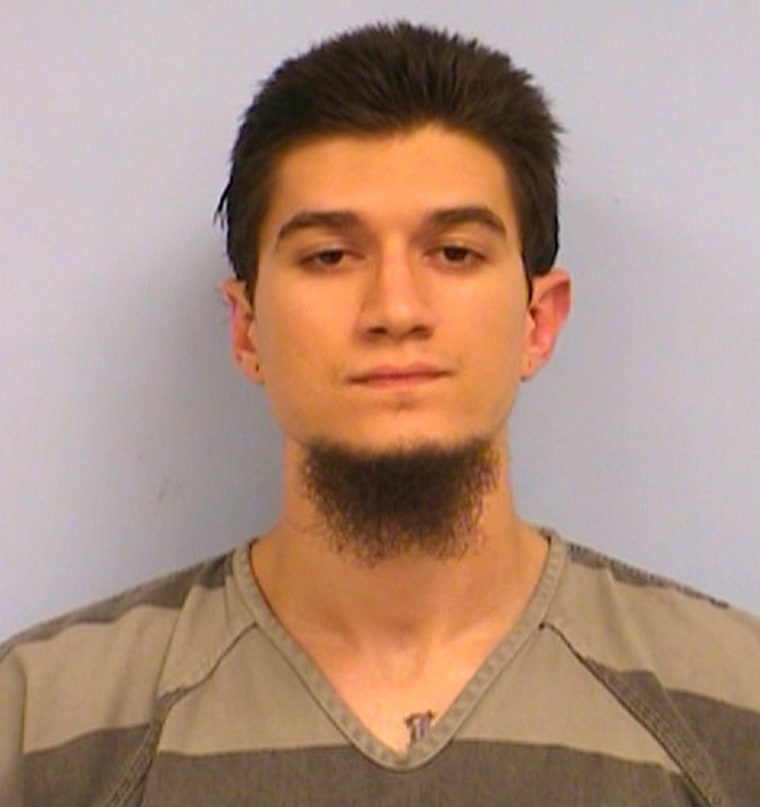A new report on terrorism financing shows that for most Americans who sought to join or support ISIS, the trip was cheap and the money came easily, making it harder for investigators to track would-be terrorists.
“[S]ave for a few exceptions, the vast majority of U.S.-based IS supporters left a remarkably small financial footprint," said the report, which contrasted the low cost of funding ISIS terror with the Al Qaeda's big budget. The small footprint "can represent a challenge for investigators, which often rely on financial operations to uncover terrorism-related individuals and as evidence in prosecutions against them."
The report, by the George Washington University Program on Extremism and the federally funded National Counterterrorism, Innovation, Technology, and Education Center at the University of Nebraska-Omaha, examined 209 individuals charged with ISIS-tied crimes from 2013 until August of this year.
Most of those charged were able to use their personal savings for their alleged terrorist activities. One would-be jihadi used a tax refund, and others sold cars, laptops and items as small as phones and shoe racks to pay for plane tickets or weapons.
"Since most of their expenses ... were no higher than a few thousand dollars," said the report, "this could sustain them."
Very few of those arrested had a criminal background — a stark contrast to those arrested for ISIS related activities in France, Spain, and other parts of Europe, the study found. Just four cases had connections to with violent crime and drug trafficking.
Most of the attacks that have been attributed to ISIS in the U.S., including the San Bernardino attack, the Pulse Nightclub shooting, and the Manhattan truck ramming incident, have cost very little money.
The U.S.'s system of financial triggers and banking laws put in place after 9/11 seems to have been proven effective, the authors wrote. But they will require fine-tuning to keep pace with "less sophisticated" financial terror organizations like ISIS.
Americans supporting ISIS spent little money compared to the sums Al Qaeda expended to plan the September 11 attacks. Prior to Sept. 11, Al Qaeda was believed to have been funded to the tune of $30 million, with the attacks costing approximately $500,000.
A dozen years later, Minnesota's Abdi Nur got $1,500 in donations from friends that helped him buy a plane ticket to Turkey and then travel to Syria, where he allegedly joined ISIS, according to court documents. He is still at large.
Mohamed Amiin Ali Roble, also of Minnesota, received a $91,654 settlement for injuries he suffered during the 2007 I-35 bridge collapse. After the settlement arrived, he left for Syria. His checking account was used approximately 45 times in a Turkish border town and calls wiretapped by the FBI show he used $47,000 to support fellow ISIS fighters, including buying a car and paying for marriage gifts. Roble and Nur, who are related, were charged in U.S. court in 2016 along with nine others. The rest received prison sentences, but Roble and Nur had joined ISIS in Syria by then.

Another man, Michael Todd Wolfe, told an undercover FBI agent that he and his wife were waiting for their tax refund of almost $5,000. When it arrived, he planned to buy a ticket to meet an ISIS facilitator and travel to Syria. He was instead arrested at Houston's George Bush Intercontinental Airport, according to court documents. Wolfe was later convicted and sentenced for attempting to provide material support for ISIS.
The report says of the just 14 cases where American ISIS supporters used illegal means to fund their support for ISIS, the most prevalent method involved student financial aid fraud. In one case, three potential travelers drew down $7,300 on their financial aid debit cards just before purchasing tickets to Syria. The efforts of all three were thwarted through airport arrests by the FBI. The report notes this tactic and the use of social-welfare benefits was also seen in European ISIS-inspired attacks.
While the U.S. system has been overall effective during the ISIS-related mobilization of the last decade, it will have to adapt to modern financial tools that will be part of the future threat from terrorism groups, including "technological developments such as online crowdfunding, cryptocurrencies, and deep/dark web transactions."

